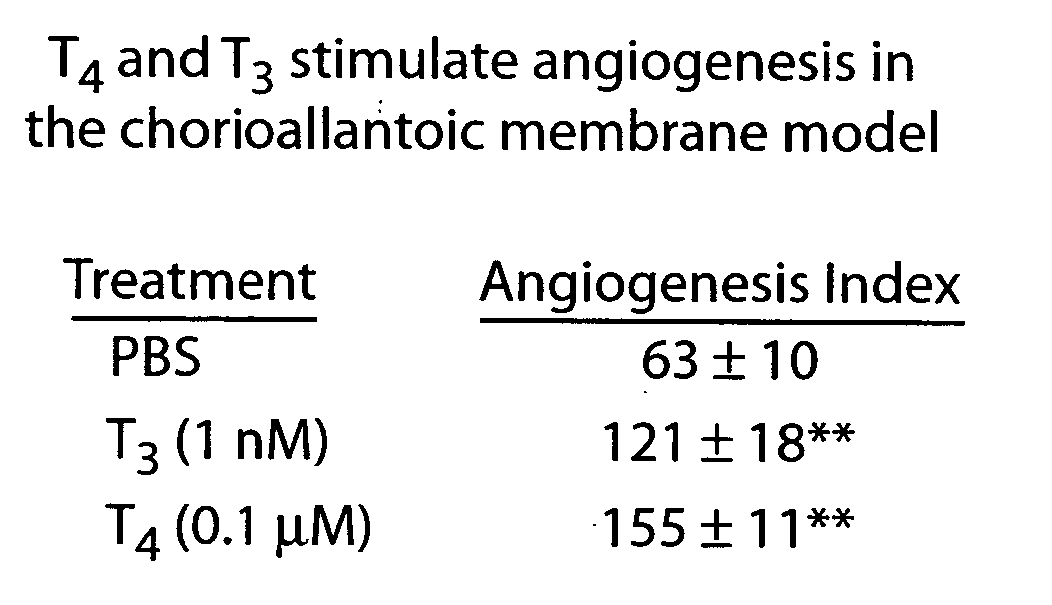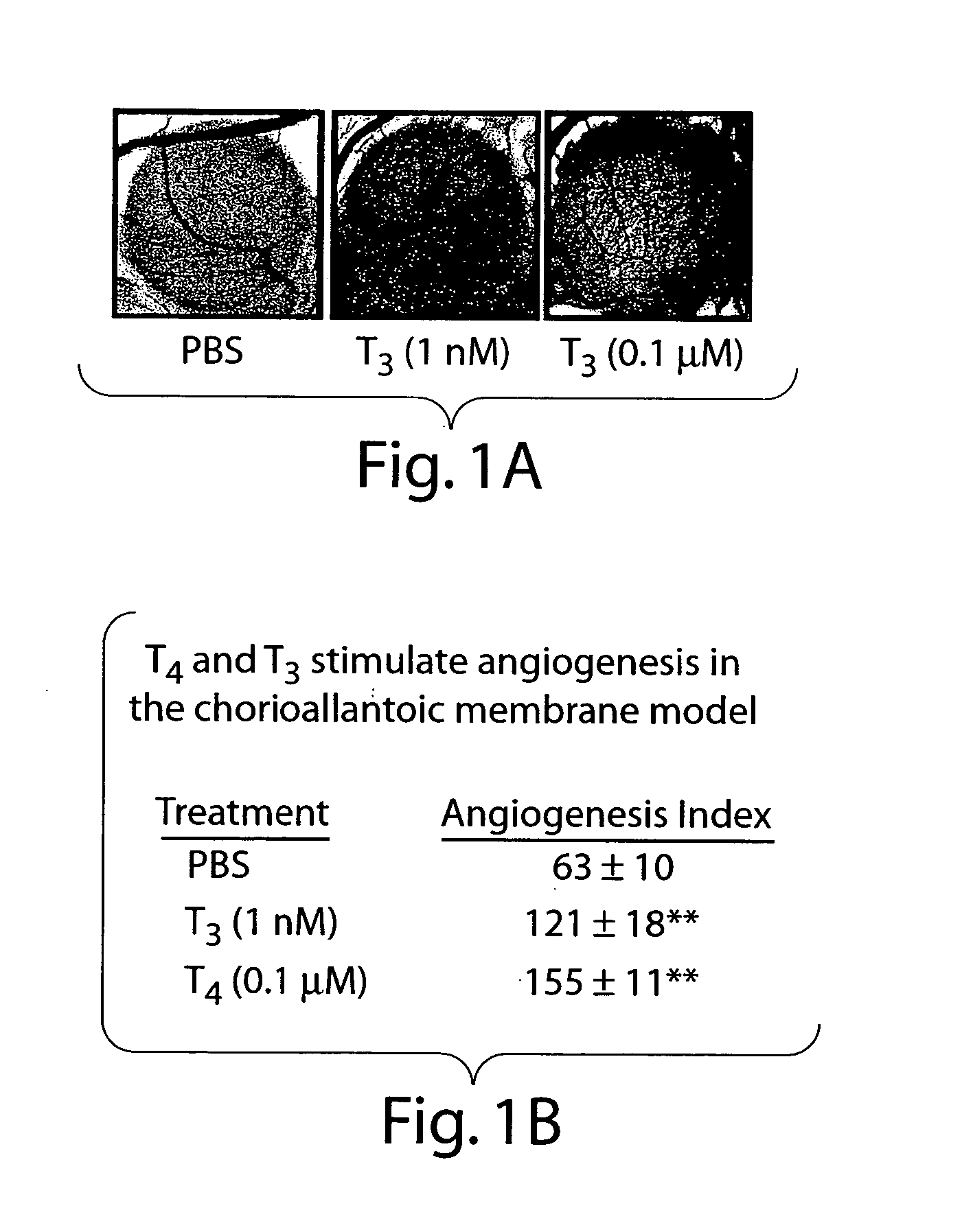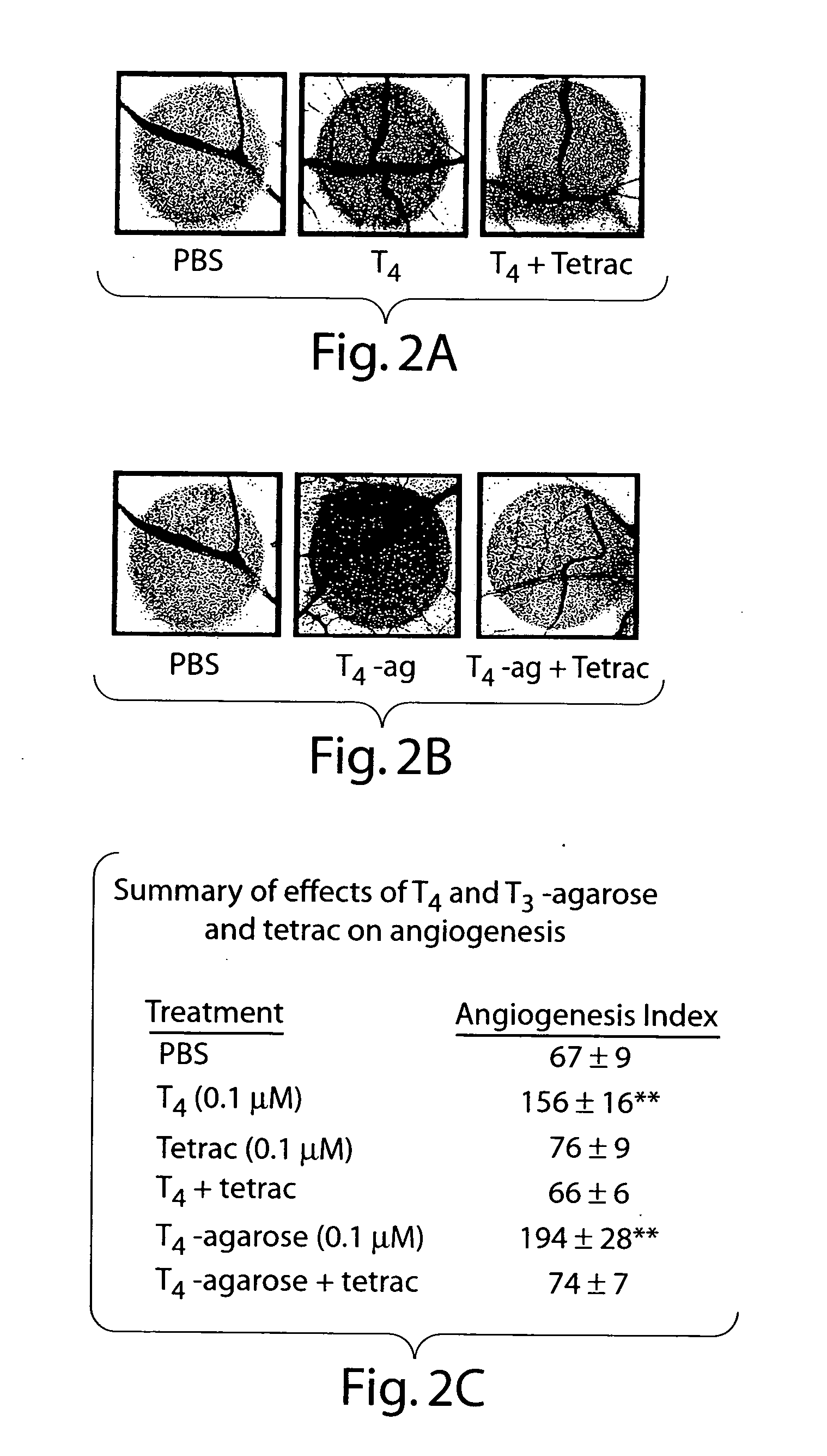Thyroid hormone analogs and methods of use
- Summary
- Abstract
- Description
- Claims
- Application Information
AI Technical Summary
Benefits of technology
Problems solved by technology
Method used
Image
Examples
example 1
Effect of Thyroid Hormone on Angiogenesis:
[0133] As seen in FIG. 1A and summarized in FIG. 1B, both L-T4 and L-T3 enhanced angiogenesis in the CAM assay. T4, 25 at a physiologic total concentration in the medium of 0.1 μmol / L, increased blood vessel branch formation by 2.5-fold (P<0.001). T3 (1 nmol / L) also stimulated angiogenesis 2-fold. The possibility that T4 was only effective because of conversion of T4 to T3 by cellular 5′-monodeiodinase was ruled out by the finding that the deiodinase inhibitor PTU had no inhibitory effect on angiogenesis produced by T4. PTU was applied to all filter disks used in the CAM model. Thus, T4 and T3 promote new blood vessel branch formation in a CAM model that has been standardized previously for the assay of growth factors.
example 2
Effects of T4-Agarose and Tetrac
[0134] We have shown previously that T4-agarose stimulates cellular signal transduction pathways initiated at the plasma membrane in the same manner as T4 and that the actions of T4 and T4-agarose are blocked by a deaminated iodothyronine analogue, tetrac, which is known to inhibit binding of T4 to plasma membranes. In the CAM model, the addition of tetrac (0.1 μmol / L) inhibited the action of T4 (FIG. 2A), but tetrac alone had no effect on angiogenesis (FIG. 2C). The action of T4-agarose, added at a hormone concentration of 0.1 μmol / L, was comparable to that of T4 in the CAM model (FIG. 2B), and the effect of T4-agarose was also inhibited by the action of tetrac (FIG. 2B; summarized in 2C).
example 3
Enhancement of Proangiogenic Activity of FGF2 by a Submaximal Concentration of T4
[0135] Angiogenesis is a complex process that usually requires the participation of polypeptide growth factors. The CAM assay requires at least 48 hours for vessel growth to be manifest; thus, the apparent plasma membrane effects of thyroid hormone in this model are likely to result in a complex transcriptional response to the hormone. Therefore, we determined whether FGF2 was involved in the hormone response and whether the hormone might potentiate the effect of subphysiologic levels of this growth factor. T4 (0.05 μmol / L) and FGF2 (0.5 μg / mL) individually stimulated angiogenesis to a modest degree (FIG. 3). The angiogenic effect of this submaximal concentration of FGF2 was enhanced by a subphysiologic concentration of T4 to the level caused by 1.0 μg FGF2 alone. Thus, the effects of submaximal hormone and growth factor concentrations appear to be additive. To define more precisely the role of FGF2 in...
PUM
| Property | Measurement | Unit |
|---|---|---|
| Size | aaaaa | aaaaa |
| Capillary wave | aaaaa | aaaaa |
| Permeability | aaaaa | aaaaa |
Abstract
Description
Claims
Application Information
 Login to View More
Login to View More - R&D
- Intellectual Property
- Life Sciences
- Materials
- Tech Scout
- Unparalleled Data Quality
- Higher Quality Content
- 60% Fewer Hallucinations
Browse by: Latest US Patents, China's latest patents, Technical Efficacy Thesaurus, Application Domain, Technology Topic, Popular Technical Reports.
© 2025 PatSnap. All rights reserved.Legal|Privacy policy|Modern Slavery Act Transparency Statement|Sitemap|About US| Contact US: help@patsnap.com



